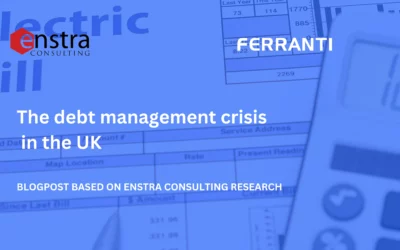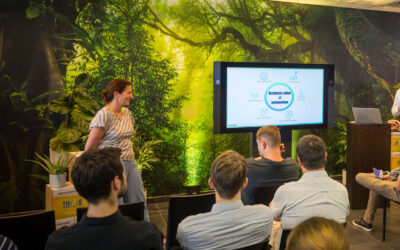There is no denying, ChatGPT is THE hot topic at the moment. Developers use it to write code, social media experts use it to create content and students deliver high-quality thesis papers thanks to the tool. The quality and accuracy of ChatGPT blows many people away. Who would have ever thought that an AI-trained tool could help people in such detail, and in any language?!
Various best-practice cases are therefore appearing online on how to use the tool as efficiently as possible. And we, too, see an opportunity in this for our customers in the energy and utilities sector.

4 benefits of implementing an AI-powered chatbot in your customer service
Smart chatbots are actually nothing new. With MECOMS 365, for instance, we created our own chatbot named MIA a few years ago and have experience implementing Power virtual agents with advanced AI features. However, the model behind ChatGPT and GPT 3 could take this to the next level when it is trained with existing customer data.
1. Handle high volume of requests simultaneously
One of the main benefits of an AI-powered chatbot, is that they can handle a high volume of requests simultaneously. This can be especially useful during periods of peak demand or when customer service resources are limited. Chatbots can also provide quick and accurate responses to frequently asked questions, allowing customers to quickly find the information they need without having to wait for a human agent to become available.
2. You can train them to better understand your customers
Additionally, AI-powered chatbots can also use natural language processing (NLP) to understand and interpret customer requests and respond in a way that is tailored to their specific needs. This can improve the overall customer experience, as customers are more likely to feel understood and valued when they can communicate with a chatbot that can understand and respond to their unique concerns.
As latest IDC survey data points out, the satisfaction levels of chatbot on suppliers website has seen a decline. Customers want to find the quickest way to get a hold of a customer representative online, skipping the robotized answer of current chatbot technologies. But this new technology is a game changers in better understanding customers needs and turning it into fruitful conversations.
(Source: IDC EMEA, Utilities Consumer Survey, July 2022)
3. AI chatbots become more accurate and effective thanks to machine learning.
Another potential benefit of using AI in customer service chatbots is the ability to use machine learning (ML) to improve the chatbot’s performance over time. By analyzing customer interactions, an ML-powered chatbot can learn from its mistakes and improve its responses to customer requests, becoming more accurate and effective over time.
4. Availability 24/7
Finally, Chatbots can work 24/7, enabling customers to get assistance at any time and this will reduce the workload of human customer service representatives.
However, it is important to keep in mind that chatbots can’t replace human agents entirely, and that you should be transparent and make it clear to customers when they are communicating with a chatbot and when they are talking to a human.
Source: ChatGPT 😉
Sidenote
Of course, training such a chatbot with the right customer-and-company data, takes a lot of time and resources. The question here is whether major players active in the AI domain (think of Microsoft, Google, …) will bring a pre-trained model to the market, or whether the training will remain a responsibility for the companies that want to apply it.
How we see the future of an AI driven customer service for Energy and Utilities
There are many advantages if you can integrate an AI trained chatbot into your customer service portal, website or other social media channels via Power Virtual Agent. However, the question remains; which topics can be handled by that chatbot, when we are looking at energy and utilities companies.
If your data is correctly tracked and stored, we see the opportunity that an AI trained chatbot can be used to handle a wide range of customer inquiries and provide helpful responses in a human- like tone of voice, such answering questions about:
- billing,
- service outages,
- and energy usage
Microsoft making Azure OpenAI generally available
Microsoft recently announced making the Azure OpenAI service generally available. This allows developers to create applications utilizing technology like ChatGPT, which is a major step forward in the field of conversational AI.
How this will be translated into concrete benefits for energy and utilities companies is still to be seen, but as Microsoft CEO Satya Nadella says, OpenAI’s capabilities will soon be integrated into all the company’s products, and we couldn’t be more excited about this.
At Ferranti, as a proud Microsoft global partner, we are eager to see what their detailed roadmap is in this exciting AI journey. All new innovations they bring to the table on customer service bots, AI, … can immediately benefit our existing customers and prospects.
Want to have a chat about AI, chatbots or how MECOMS 365 can improve your customer service?
Then be sure to fill in the form, and we will reach out to you within 2 working days!
Or help build the software platform of the future for energy and utility companies!
View all open vacancies here:




